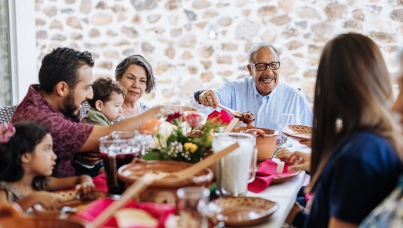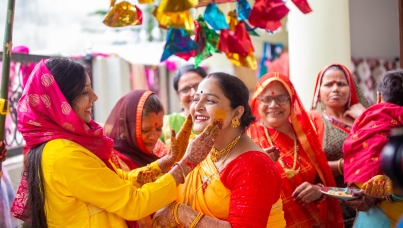

7 in 10 urban Indians think about their mental wellbeing often: Ipsos Global Mental Health Survey 2022
: Today (October 10) is World Mental Health Day. This year’s theme being, Mental Health in an unequal world. How often do citizens think about their mental wellbeing? Interestingly, 7 in 10 urban Indians polled (70%) claimed to be thinking about their mental wellbeing often; while 58% of global citizens claimed to think often. Portugal was the highest at 82%, with most thinking about their mental wellbeing.
How often think about mental health.
"The prolonged pandemic of two years was a strain on mental health with increased stress, of the illness lurking and affliction, and of course, the collateral impact on jobs, finances etc., which is bringing Mental Health into the focus and how mental wellbeing too should be addressed," said Amit Adarkar, CEO, Ipsos India.
Gauri Pathak, Country Service Line Leader, Healthcare, Ipsos India, echoed similar views, "People have witnessed high levels of uncertainty and insecurity during the pandemic. This has led to increase in mental health issues. At the same time there has been a lot of focus on creating awareness and acceptance about mental health too."
Mental Health Issues have been impacting urban Indians
Urban Indians are dealing with a host of issues, which have been largely impacting their day to day lives.
37% said, they felt stressed to the point where it had an impact on how they live their daily lives;
36% felt stressed to the point where they felt like they could not cope/ deal with things;
34% felt depressed to the point that they felt sad or hopeless almost every day for a couple of weeks or more;
33% felt stressed to the point they could not go to work for a period of time and
24% seriously considered suicide or self-hurt.
"Mental Health impact has been quite severe for a significant number of urban Indians and they have been confronting a lot of issues which can be eased by communicating or medical help. Notably, a number of respondents are sharing, earlier it was considered a taboo to even mention it due to stigma attached to the topic and misinterpretations," added Adarkar.
"The impact of mental health challenges, e.g. stress, depression on the lives of urban Indians have been quite significant. While these issues impacted their day to day life, they also skipped work and social gatherings. There is a strong need for employers to understand the sensitivity of this issue and support employee mental wellbeing," added Pathak.
Remedial measures taken
Urban Indians claimed to have taken some concrete steps to alleviate their mental health issues.
- 39% talked with friends/family about mental health issues/concerns;
- 29% talked with their primary healthcare provider, like a family doctor, about your mental health;
- 29% have taken time off work/school to help a family member/close friend with a mental health issue;
- 28% have taken a medication to help with your mental health, for things like stress, depression.
- 25% have missed a social gathering/family event due to their mental health.
- 24% have talked with a counsellor, psychologist, psychiatrist about their mental health.
- 24% have taken time off work/school to deal with a personal mental health issue; and
- 10% have posted/ written something online, in social media when they have been feeling stressed, depressed.
Physical Health vis-à-vis Mental Health
3 in 4 urban Indians (75%) think about their physical wellbeing often.
On being asked what holds more priority - Mental wellbeing or Physical wellbeing? 76% global citizens said both are equally important, while urban Indians had split views – 49% saying both are equally important, while 31% prioritized mental wellbeing, 18% chose physical wellbeing over mental.
How does the system in India treat the mental & physical wellbeing? The respondents said it was a mixed bag: 35% believed both mental and physical health were treated equally, 32% felt physical health was given more importance, while 27% mental health was prioritized by the system.
No stark differences seen between perception and experience.
While at the global level the difference was glaring 76% perceived both physical and mental health being equally important, but only 33% claimed the system treated both on the equal footing. 41% believed physical health was prioritized.
Methodology
These are the results of a 34-country survey conducted by Ipsos on its Global Advisor online platform.
Ipsos interviewed a total of 23,507 adults aged 18-74 in the United States, Canada, Malaysia, South Africa, and Turkey, 20-74 in Thailand, 21-74 in Indonesia, and 16-74 in 27 other markets between Friday, July 22 and Friday, August 5, 2022. The samples in Brazil, Chile, mainland China, Colombia, India, Indonesia, Ireland, Malaysia, Mexico, Peru, Saudi Arabia, South Africa, Thailand, Turkey, and United Arab Emirates are more urban, more educated, and/or more affluent than the general population. The survey results for these countries should be viewed as reflecting the views of the more “connected” segment of their population.
The sample consists of approximately 1,000 individuals in each of Australia, Brazil, Canada, mainland China, France, Germany, Great Britain, Italy, Japan, Spain, and the U.S., and 500 individuals in each of Argentina, Belgium, Chile, Colombia, Hungary, India, Indonesia, Ireland, Malaysia, Mexico, the Netherlands, Peru, Poland, Portugal, Romania, Saudi Arabia, South Africa, South Korea, Sweden, Switzerland, Thailand, Turkey, and the United Arab Emirates. The data is weighted so that each country’s sample composition best reflects the demographic profile of the adult population according to the most recent census data. The “Global Country Average” reflects the average result for all the countries and markets where the survey was conducted. It has not been adjusted to the population size of each country or market and is not intended to suggest a total result. The samples in Argentina, Australia, Belgium, Canada, France, Germany, Great Britain, Hungary, Italy, Japan, the Netherlands, Poland, Portugal, Romania, South Korea, Spain, Sweden, Switzerland, and the U.S. can be taken as representative of their general adult population under the age of 75. Where results do not sum to 100 or the ‘difference’ appears to be +/-1 more/less than the actual, this may be due to rounding, multiple responses, or the exclusion of “don't know” or not stated responses. The precision of Ipsos online polls is calculated using a credibility interval with a poll of 1,000 accurate to +/- 3.5 percentage points and of 500 accurate to +/- 5.0 percentage points. For more information on Ipsos’ use of credibility intervals, please visit the lpsos website. The publication of these findings abides by local rules and regulations.
About Ipsos
Ipsos is one of the largest market research and polling companies globally, operating in 90 markets and employing over 18,000 people.
Our passionately curious research professionals, analysts and scientists have built unique multi-specialist capabilities that provide true understanding and powerful insights into the actions, opinions and motivations of citizens, consumers, patients, customers or employees. Our 75 solutions are based on primary data from our surveys, social media monitoring, and qualitative or observational techniques.
Our tagline "Game Changers" sums up our ambition to help our 5,000 customers move confidently through a rapidly changing world.
Founded in France in 1975, Ipsos has been listed on the Euronext Paris since July 1, 1999. The company is part of the SBF 120 and Mid-60 indices and is eligible for the Deferred Settlement Service (SRD).ISIN code FR0000073298, Reuters ISOS.PA, Bloomberg IPS:FP www.ipsos.com



